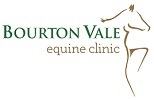A horse’s teeth, unlike a human’s, continuously erupt throughout their lives. In the wild a horse/pony would spend up to 16 hours per day eating a fairly coarse fibrous diet (e.g. ponies on Exmoor and Dartmoor). This generally causes natural, fairly even wear of the teeth. As we have domesticated horses and ponies, we have significantly altered their diets with high quality but less fibrous grass, hay and haylage. In addition we feed manufactured compound feeds which reduce the amount a horse chews. This unnatural diet leads to uneven or abnormal wearing of the teeth.
Routine dental care is essential to prevent discomfort when a bridle or bit is in place, and ensures peak performance. In addition it will allow them to eat normally. Horses and ponies under eight years of age or those with specific dental abnormalities should be examined and treated every six months. Those aged over eight years may well only need to be treated once a year which can be easily combined with their annual vaccination
